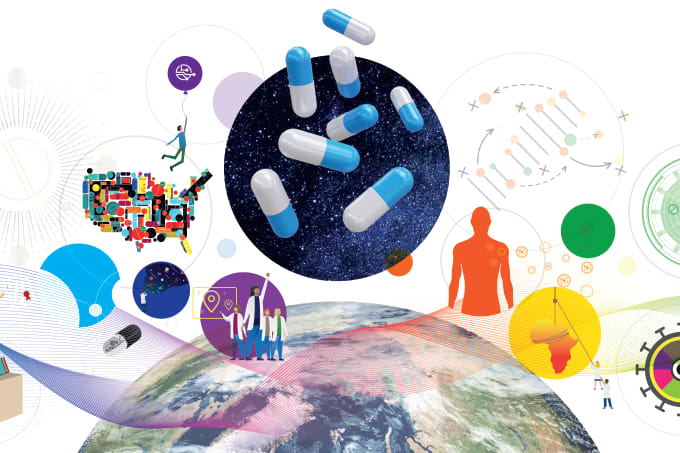
Two decades after biosimilars entered the European market, questions of access, confidence, and sustainability remain at the forefront. With the approval of its denosumab biosimilars, Biocon Biologics joins the next chapter of this story where regulatory innovation, education, and collaboration will determine how widely patients benefit. In this Q&A, Blake Leitch, Head of Europe at Biocon Biologics, reflects on the evolving role of biosimilars in European healthcare and what it will take to move from acceptance to true integration.
What strategies are in place to ensure that biosimilars are both affordable and accessible to patients across Europe?
Since the introduction of biosimilars in Europe two decades ago, substantial progress has been made in enhancing patient access and building confidence in biosimilar therapies. To support affordability and accessibility across the continent, regulatory authorities have implemented streamlined approval pathways; national healthcare systems have leveraged cost optimization strategies to expand therapeutic reach and improve patient access; and institutional stakeholders have promoted adoption through targeted policy initiatives. While all these activities have highlighted the value of biosimilars, unlocking their full potential remains an ongoing challenge as the uptakes vary between countries and therapeutic areas.
Are there collaborations with healthcare providers or systems to facilitate the adoption of biosimilars in clinical practice?
A large part of facilitating the transition from biologics to biosimilars involves raising greater awareness and improving understanding among healthcare professionals, pharmacists, and patients.
For instance, Finland has taken a comprehensive and multi-stakeholder approach to promote biosimilar adoption. The Rational Pharmacotherapy Action Plan, led by the Ministry of Social Affairs and Health, brings together various stakeholders with the aim of educating prescribers and healthcare professionals about biosimilars, developing tailored guidelines for safe switching and substitution, and monitoring prescribing behavior to encourage cost-effective choices.
In the UK, NHS England has embedded biosimilar adoption into its broader strategy for delivering value-based care. Through its Commissioning Framework for Best Value Biological Medicines, the NHS encourages early and widespread adoption of biosimilars to free up resources.
In France, the government has taken steps to encourage the use of biosimilars by introducing incentive programs for both hospitals and physicians. In Germany, collaboration happens at the regional level, where health insurers work closely with physicians. They implement prescribing quotas and shared savings models, creating a system where both cost-efficiency and patient care are prioritized.
Meanwhile, in Italy, regional health authorities play a key role by organizing competitive tenders that often favour biosimilars. This approach not only supports cost containment but also promotes broader access to biologic treatments within hospital settings.
In addition, biosimilar associations across Europe, of which we are an active partner, promote a wide range of initiatives aimed at shaping policy and raising awareness about the value and role of biosimilars in sustainable healthcare.
What measures are being taken to ensure a consistent and reliable supply of biosimilars throughout the EU?
The European Medicines Agency has introduced specific measures and recommendations to safeguard treatment continuity for patients by ensuring the supply of essential medicines, including biosimilars, in the event of shortages. To support this commitment, we have invested in commercial-scale, globally compliant manufacturing facilities in India and Malaysia, equipped with integrated capabilities across drug substance, drug product, and devices, ensuring a reliable and sustainable supply of biosimilars throughout Europe. Our Quality organization is based in Ireland and France, and we also perform European importation testing through contract laboratories located in Ireland, Poland, and Spain.
With recent regulatory approvals in the EU, what are Biocon Biologics' plans for launching biosimilars across various European markets in the near future?
Our priority is to provide healthcare professionals and patients with improved access to essential medicines, especially in chronic therapeutic areas such as oncology, immunology, and diabetes. This commitment is rooted in the urgent and growing need for better access to treatments. The past twenty years have witnessed a near-doubling of adult diabetes across Europe. Cancer affected 2.74 million new patients in 2022 alone, while autoimmune conditions like rheumatoid arthritis now affects two million people continent-wide.
In 2019, an estimated 32 million Europeans over the age of 50 were living with osteoporosis, a health condition that weakens bones, making them fragile and more likely to break. At the same time, nearly all cancers have the potential to spread to the bone, causing pain, fractures, and further complications. Amid this backdrop, the need for effective, accessible treatments that support patients through these challenges is more critical than ever.
With this objective in mind, we are actively working to ensure that our biosimilars become available to patients across Europe at the earliest possible opportunity.
How does Biocon Biologics plan to position itself in therapeutic areas where other biosimilars have already received approval?
We view the competitive landscape for our biosimilars as a fundamentally positive development for the healthcare ecosystem. Increased competition enhances accessibility, enabling healthcare systems to provide essential medicines to more patients.
Developed over decades, our “lab-to-market” model includes end-to-end control over R&D, product development, manufacturing, and distribution, helping to ensure a reliable and agile European supply chain.
Which therapeutic areas is Biocon Biologics focusing on for the European market?
Today, we commercialize a portfolio of nine biosimilars in Europe, spanning five major therapeutic areas: oncology, immunology, diabetes, ophthalmology, and bone health. Looking ahead, we are committed to expanding access to this portfolio across the entire region, with the goal of providing healthcare systems with a broader range of essential and affordable treatment options for patients. We have received many recent approvals for biosimilars in the last few years and we are eager to bring these solutions to the EU, UK, and Swiss markets as soon as possible.
What insights were gained from the European Medicines Agency's approval process that could inform future biosimilar submissions?
With many years’ experience, across numerous molecules and therapeutic areas, biosimilars have been proven to be a safe and effective alternative to the originator biologics across Europe. Millions of patients have benefited from their use and billions of Euros have been saved. With this increasing body of positive real-world evidence, there remains an important opportunity to accelerate the regulatory pathway for future biosimilar molecule approvals. A significant development is in the potential to waive the requirement for phase III clinical trials in appropriate cases. These studies often involve hundreds of patients, span two to four years, and the average cost of developing a biosimilar drug ranges from €100 to €250 million, resources that could be more effectively directed toward expanding access and improving patient outcomes.
The EMA has increasingly acknowledged these challenges and appears open to evolving its regulatory approach. With a substantial body of evidence and real-world experience from the approval of several biosimilars in the EU, there is a strong foundation for a more streamlined and efficient development model. In fact, the EMA has recently published a reflection paper aiming to streamline the clinical development of biosimilars to waive phase III trials, in certain cases. This shift could play a pivotal role in accelerating access to biosimilars, while maintaining the highest standards of safety and efficacy.




